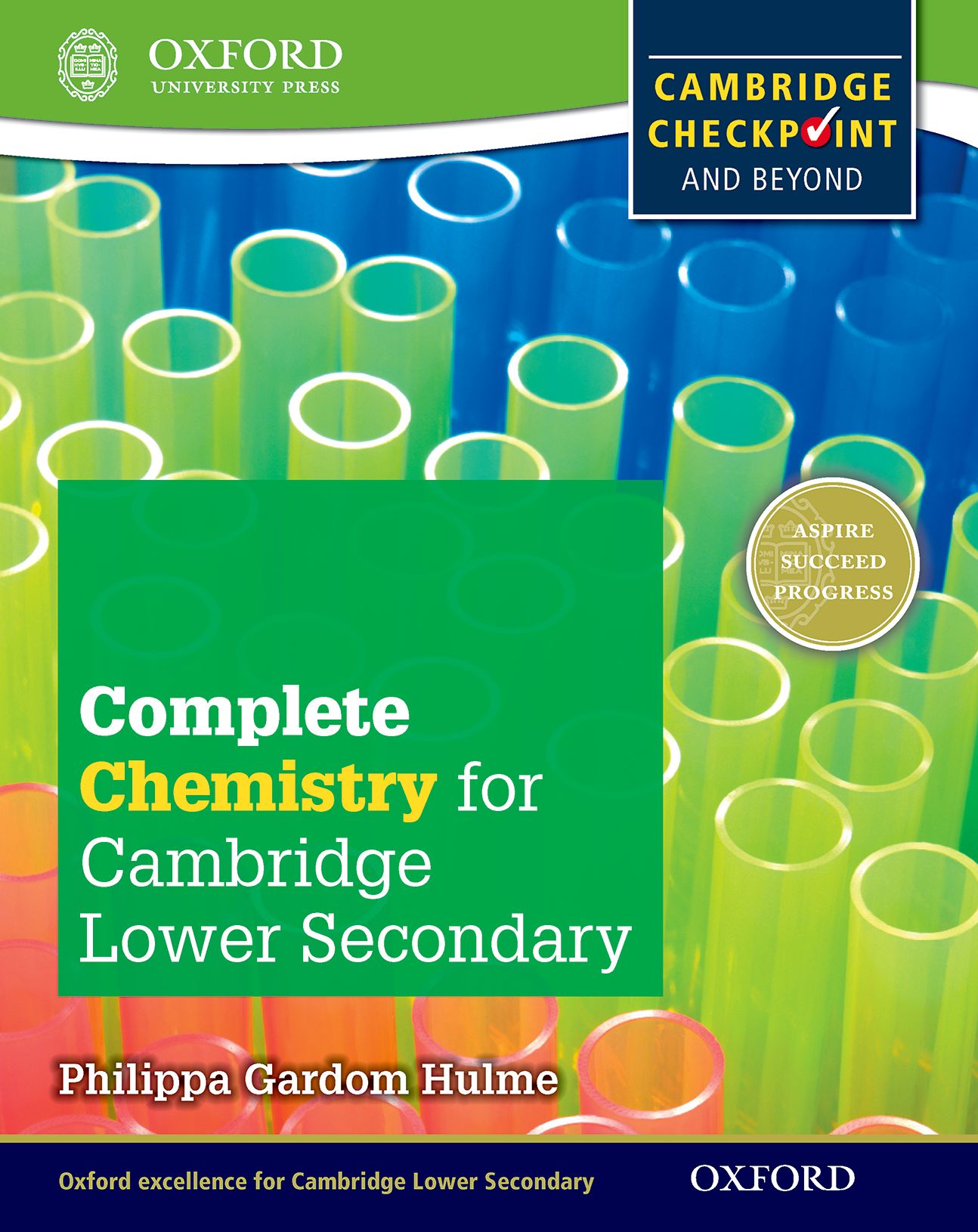Stage 7
1 States of matter
1.1The particle theory of matter
1.2Boiling, evaporating and condensing
1.3Enquiry: Questions, evidence and explanations
1.4Melting, freezing and subliming
1.5Extension: Energy and changes of state
1.6Using particle theory to explain dissolving
1.7Enquiry: Planning an investigation
1.8Enquiry: Presenting evidence
1.9Review: Checkpoint-style questions
2 Material properties
2.1Introducing elements
2.2Metals
2.3Non-metals elements
2.4Enquiry: Making conclusions from data
2.5Extension: Metal alloys
2.6Material properties
2.7Extension: Polymers
2.8Review: Checkpoint-style questions
3 Material changes
3.1Acids and alkalis
3.2The pH scale and indicators
3.3Neutralisation
3.4Enquiry: Planning investigations and collecting evidence
3.5Review: Checkpoint-style questions
4 The Earth
4.1The structure of the Earth
4.2Igneous rocks
4.3Sedimentary rocks
4.4More on sedimentary rocks
4.5Metamorphic rocks
4.6Enquiry: Questions, evidence and explanations
4.7Enquiry: Explaining predictions
4.8Soil
4.9More about soil
4.10Fossils
4.11Estimating the age of the Earth
4.12Extension: Human fossils
4.13Review: Checkpoint-style questions
Stage 7 Review
Stage 8
5 States of matter
5.1States of matter revisited
5.2Changing states revisited
5.3Explaining diffusion
5.4Explaining gas pressure
5.5Enquiry: Asking scientific questions
5.6Enquiry: Investigating trends
5.7Review: Checkpoint-style questions
6 Material properties
6.1Atoms
6.2Elements
6.3Discovering the elements
6.4Organising elements - the periodic table
6.5Enquiry: Interpreting data from secondary sources
6.6Enquiry: Simple calculations
6.7Explaining differences between metals and non-metals
6.8Extension: What are you made of?
6.9What are compounds
6.10More on compounds
6.11Naming compounds
6.12Oxides and hydroxides
6.13Chlorides, sulfates and carbonates
6.14Mixtures
6.15Separating mixtures - filtering and decanting
6.16Separating mixtures - evaporation and distillation
6.17Separating mixtures - chromatography
6.18Enquiry: Communicating explanations to others
6.19Extension: Explaining chromatography
6.20Review: Checkpoint-style questions
7 Material changes
7.1Reactions of metals with oxygen
7.2Writing word equations
7.3Corrosion
7.4Enquiry: Planning investigations and controlling variables
7.5Review: Checkpoint-style questions
Stage 8 Review
Stage 9
8 Material properties
8.1Structure of atoms
8.2Rutherford's work
8.3Enquiry: How scientists work
8.4The first 20 elements
8.5Extension: Isotopes
8.6Trends in properties of group 1 element
8.7Trends in properties of group 2 element
8.8Properties of group 7 elements
8.9The group 0 elements
8.10Enquiry: Questions, evidence and explanations
8.11Review: Checkpoint-style questions
9 Energy changes
9.1Energy changes in chemical reactions
9.2Endothermic reactions
9.3Exothermic reactions
9.4Enquiry: Preliminary work
9.5Extension: Calculating energy changes
9.6Review: Checkpoint-style questions
10 The reactivity series
10.1Reactivity of metals with oxygen
10.2Enquiry: Questions, evidence and explanation
10.3Reactivity of metals with water
10.4Reactivity of metals with dilute acids
10.5Extension: Writing symbol equations
10.6Describing correlations, interpreting results and drawing conclusions
10.7The reactivity series
10.8Reactivity and the discovery of metals
10.9Metal displacement reactions
10.10Review: Checkpoint-style questions
11 Making salts
11.1Making salts - acids and metals
11.2Making salts - acids and carbonates
11.3Extension: Making salts - acids and alkalis
11.4Extension: Making salts - fertilizers
11.5Review: Checkpoint-style questions
12 Rates of reaction
12.1Reaction rates
12.2Effect of concentration on reaction rates
12.3Enquiry: Planning investigations
12.4Effects of particle size and catalysts on reaction rates
12.5Effects of temperature on reaction rates
12.6Review: Checkpoint-style questions
Stage 9 Review
Reference pages
Glossary
Answers
Index


